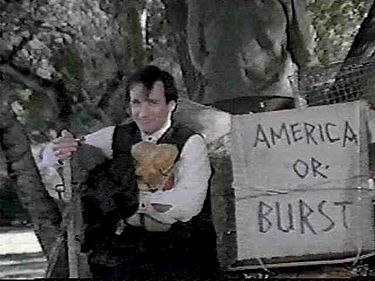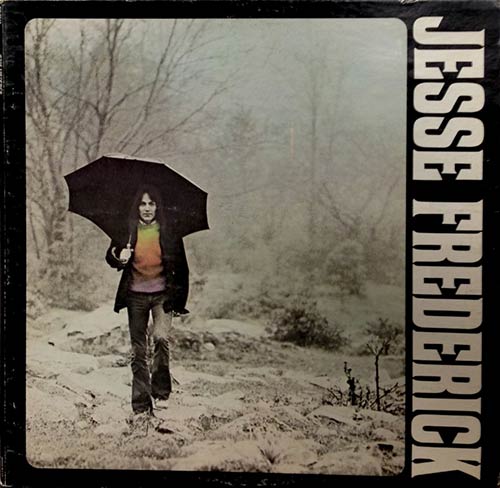Where Nobody Knows Your Name
Step by step, most TV show theme song composers hide in the shadows, with their most famous moments glossed over and anonymized, everywhere you look.
“I think I got $150 for the Cheers theme. And I had a very powerful lawyer, and he just says, ’Look, whatever it’s gonna be, it’s gonna be, but you’re not gonna make your money up front. So go for it.’”
— Gary Portnoy, the guy who wrote the theme song to Cheers, discussing with Marketplace the financial windfall he got from writing and performing one of the most famous theme songs of the 1980s. Long story short: It was all on the backend, and he gets paid every time the show plays. Much like Christmas music, creating a TV show theme song is an incredibly shrewd investment. Not that it’s perfect: Portnoy is the first to admit that he got lucky. “The universe has to shine on every aspect of it,” he explains. “It’s not just you wrote a magical song, but somebody wrote a magical script and somebody cast it well, and people took to it.” Portnoy did get lucky, though, and he hasn’t had to work for years—he lives off of his Cheers money.
Five Fascinating Pieces of TV Theme Show Trivia
- TV impresario Merv Griffin wrote the Jeopardy! theme song as a lullaby for his son Tony in the late ’60s. Unlike most people who write lullabies, he copyrighted the tune—doing so 15 years before the show began to regularly use the tune. It made Griffin upwards of $80 million. No, really.
- The first season of Gilligan’s Island failed to mention the Professor and Mary Anne in the theme song, referring to them as “the rest,” but Bob Denver didn’t like that. Denver threatened to take his name off the credits unless the full cast got a mention in the credits. Now that’s unexpectedly forthright behavior from Gilligan.
- Hoyt Curtin, the creator of many theme songs for Hanna-Barbera, most famously The Flintstones, was a huge jazz hound—something reflected by the Flintstones theme song, which is based off of George and Ira Gershwin’s “I Got Rhythm.“ As a result, the theme song is a common jazz standard.
- Most of the procedural shows in the ’80s and ’90s—and there were a lot of them—all had theme songs made by the same guy. Mike Post, who has created tunes for Law & Order, NYPD Blue, The Rockford Files, and Magnum P.I. among others, was so good at his job that show creators like Dick Wolf and Stephen J. Cannell asked for him by name. Post, frustratingly, was also involved in Stephen Bochco’s Cop Rock.
- “Thank You For Being a Friend,“ the theme song to The Golden Girls, was a one-hit wonder’s second attempt at a hit. Andrew Gold, the guy who wrote it, could only get it up to 25 on the charts, but that’s OK, because Estelle Getty made it famous. Cynthia Fee, the voice behind the TV show rendition, was a seasoned commercial jingle singer of the era, though she’s since branched out.
Most of the songs in TGIF’s classic lineup have this guy’s fingerprints
How do you keep a career in music when you can’t sell any albums? Songwriter Jesse Frederick learned quickly—decades before most of his peers, by the way—that there’s quite the lucrative career to be found in making TV-show theme songs.
Frederick came about in the singer-songwriter era, and was signed to the same label as Todd Rundgren, the Laura Nyro enthusiast who mastered Frederick’s self-titled record.
Frederick’s work, unfortunately, was the worst kind of successful: it was critically acclaimed but didn’t move units. Eventually, Frederick tried recording a couple of other albums on different labels, neither of which got released.
But sometimes, fate has a funny way of working out (which is sort of the lesson of all the theme songs he did). After scoring a handful of films, most famously the 1984 Garry Marshall flick The Flamingo Kid, Frederick followed Marshall to his usual medium—television. Starting a creative partnership with Marshall’s longtime music guy Bennett Salvay, the two musicians eventually followed producers Thomas L. Miller and Robert L. Boyett from Paramount to their own production company, Miller/Boyett Productions.
The first big Miller/Boyett project Frederick took on was a little ditty you might be familiar with called Perfect Strangers. The song’s rise and fall (on the wings on my dreams) ensured that the song would become both easy to remember and easy to parody. He wrote the song, though David Pomeranz—a guy who looks like what you would expect a merger of Mark-Linn Baker and Bronson Pinchot to look like—sang the lyrics.
Quickly enough, Frederick went from merely co-writing the songs to singing them. His voice—a raspy, bluesy tool—can be heard in the opening credits of Full House, Family Matters, and Step By Step.
(By the way, it should be noted that another TGIF staple, Boy Meets World, didn’t use a theme song written by Frederick, and it changed its intro numerous times over its seven-season history. Coincidence? We think not.)

There are people inspired by Jesse Frederick
These theme songs, which you’ve heard so many times that you can probably perform all of them karaoke-style without a lyrics sheet, inspire some unusually fanatic responses. Perhaps the most interesting such response came from a Michigan band called The Pop Project, which decided to take its love of TGIF and record an album of covers.
The decision to make this EP required the band to get a hold of the copyright-holder, which meant that they had to actually call up Jesse Frederick. Adam Kempa, the drummer of the band, was so inspired by the experience that he created something of a lengthy shrine to both Frederick and his often obscure body of work.
“It was pretty insane to hear someone say things like ‘Yeah, when we cut the theme to Step By Step, we actually recorded a song-length version of it, with an extra verse, maybe a bridge or something.’ and be totally straight-faced,” keyboardist Zach Curd explained to Kempa.
This band is far from the only set of musicians to cover Frederick’s songs, either. Just look on YouTube.
And his cheery, upbeat tunes have even inspired some musical comedy—in improv form, rather than sitcom form. Next weekend, Chicago’s iO Improv Theater will be hosting “As Days Go By: Jesse Frederick’s Last Concert,” which imagines the reclusive Frederick as a man about to disappear into Lake Michigan. We imagine it’ll be somewhere between Chicago and Port Washington, Wisconsin.
“It’s so crazy when you do work for people to pay you when it’s over. People in the music business say, ‘We’ll pay you 90 days after the next fiscal period, maybe if the accounting comes through.’ I was shocked when I first did some ads. I did the work and then they just paid for it.”
— Zach Rogue, the lead singer of Rogue Wave, discussing with Pitchfork how he found steady work by moving from recording albums to soundtracking TV shows and commercials. Rogue says that he found that the work, although mentally taxing, would allow him to be closer to his family. “I submitted to a TV show, but I was scared to get it, because I knew if I did that would be my life for a long time,” he noted. (He’s far from the only artist, by the way, to shift gears from tours to TV soundtracks—’90s female rock icon Liz Phair has made a second career out of the work, most notably soundtracking the 90210 reboot.)
Very shortly, the state of perhaps the most memorable theme song of the past 30 years is about to change significantly. And yes, it’s one written by our boy Jesse Frederick.
“Everywhere You Look,” which you might better know as the Full House theme song, is about to get a remake, thanks to Netflix, which is planning to release Fuller House at the end of next month. Replacing Frederick’s raspy, blues-inspired voice will be none other than the Jesse Frederick of the 21st century, Carly Rae Jepsen. (Butch Walker, the Todd Rundgren of his generation, is manning the boards on the track.)
Jokes aside, Jepsen is clearly the opposite of Frederick in one important way: everyone knows who she is. That could threaten to overshadow the cheese-pop that Frederick showered ABC sitcoms in.
Will having a famous person sing the lyrics have a damaging effect on a classic tune? (And let’s be honest, who asks a question like that?)
:format(jpeg)/2018/01/hiw9js8jjmun5mlyajdf.gif)
/2018/01/hiw9js8jjmun5mlyajdf.gif)


/uploads/ernie_crop.jpg)